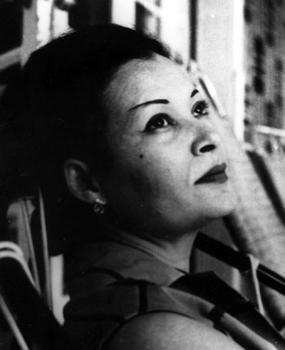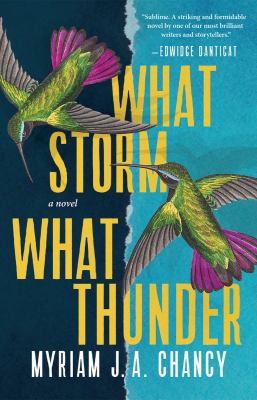Related Research Articles

Nalo Hopkinson is a Jamaican-born Canadian speculative fiction writer and editor. Her novels – Brown Girl in the Ring (1998), Midnight Robber (2000), The Salt Roads (2003), The New Moon's Arms (2007) – and short stories such as those in her collection Skin Folk (2001) often draw on Caribbean history and language, and its traditions of oral and written storytelling.

Edwidge Danticat is a Haitian-American novelist and short story writer. Her first novel, Breath, Eyes, Memory, was published in 1994 and went on to become an Oprah's Book Club selection. Danticat has since written or edited several books and has been the recipient of many awards and honors. As of the fall of 2023, she will be the Wun Tsun Tam Mellon Professor of the Humanities in the department of African American and African Diaspora Studies at Columbia University.
Guyanese literature covers works including novels, poetry, plays and others written by people born or strongly-affiliated with Guyana. Formerly British Guiana, British language and style has an enduring impact on the writings from Guyana, which are done in English language and utilizing Guyanese Creole. Emigration has contributed to a large body of work relating the Guyanese diaspora experience.
Caribbean literature is the literature of the various territories of the Caribbean region. Literature in English from the former British West Indies may be referred to as Anglo-Caribbean or, in historical contexts, as West Indian literature. Most of these territories have become independent nations since the 1960s, though some retain colonial ties to the United Kingdom. They share, apart from the English language, a number of political, cultural, and social ties which make it useful to consider their literary output in a single category. The more wide-ranging term "Caribbean literature" generally refers to the literature of all Caribbean territories regardless of language—whether written in English, Spanish, French, Hindustani, or Dutch, or one of numerous creoles.
Ian McDonald is a Caribbean-born poet and writer who describes himself as "Antiguan by ancestry, Trinidadian by birth, Guyanese by adoption, and West Indian by conviction." His ancestry on his father's side is Antiguan and Kittitian, and Trinidadian on his mother’s side. His only novel, The Humming-Bird Tree, first published in 1969, is considered a classic of Caribbean literature.
David Dabydeen FRSL is a Guyanese-born broadcaster, novelist, poet and academic. He was formerly Guyana's Ambassador to UNESCO from 1997 to 2010, and was the youngest Member of the UNESCO Executive Board (1993–1997), elected by the General Council of all Member States of UNESCO. He was appointed Guyana's Ambassador Plenipotentiary and Extraordinaire to China, from 2010 to 2015. He is one of the longest serving diplomats in the history of Guyana, most of his work done in a voluntary unpaid capacity.
Lakshmi Persaud was a Trinidad-born, British-based writer who resided in London, England. She was the author of five novels: Butterfly in the Wind (1990), Sastra (1993), For the Love of My Name (2000), Raise the Lanterns High (2004) and Daughters of Empire (2012).
Marlene Nourbese Philip, usually credited as M. NourbeSe Philip, is a Canadian poet, novelist, playwright, essayist and short story writer.
Jan Rynveld Carew was a Guyana-born novelist, playwright, poet and educator, who lived at various times in The Netherlands, Mexico, the UK, France, Spain, Ghana, Jamaica, Canada and the United States.
Cyril Dabydeen is a Guyana-born Canadian writer of Indian descent. He grew up in Rose Hall sugar plantation with the sense of Indian indenture rooted in his family background. He is a cousin of the UK writer David Dabydeen.
Ryhaan Shah is an Indo-Guyanese writer born in Berbice, Guyana. She is active in Guyanese public life as the President of the Guyanese Indian Heritage Association (GIHA).

Marie Vieux-Chauvet, was a Haitian novelist, poet and playwright. Born and educated in Port-au-Prince, she is most famous for the novels Fille d'Haïti (1954), La Danse sur le volcan (1957), Fonds des nègres (1960), and Amour, colère et folie (1968). During her lifetime, she published under the name Marie Chauvet.
Joan Riley is a Jamaican-British writer. Her 1985 debut novel The Unbelonging made her "the first Afro-Caribbean woman author to write about the experiences of Blacks in England".
Jacqueline Bishop is a writer, visual artist and photographer from Jamaica, who now lives in New York City, where she is a professor at the School of Liberal Studies at New York University (NYU). She is the founder of Calabash, an online journal of Caribbean art and letters, housed at NYU, and also writes for the Huffington Post and the Jamaica Observer Arts Magazine. In 2016 her book The Gymnast and Other Positions won the nonfiction category of the OCM Bocas Prize for Caribbean Literature. She is a contributor to the 2019 anthology New Daughters of Africa, edited by Margaret Busby.

Barbara Jenkins is a Trinidadian writer, whose work since 2010 has won several international prizes, including the Commonwealth Short Story Prize and the Wasafiri New Writing Prize.
Nadine Magloire was a Haitian-Canadian writer.
Elizabeth Walcott-Hackshaw is a Trinidadian writer and academic, who is Professor of French Literature and Creative Writing at the University of the West Indies. Her writing encompasses both scholarly and creative work, and she has also co-edited several books. Walcott-Hackshaw is the daughter of Nobel Prize laureate Derek Walcott.
Annie Desroy was the pseudonym of Anne-Marie Bourand, née Lerebours (1893-1948), a Haitian novelist, playwright and teacher. She is best known for her 1934 novel Le joug.
Jane Bryce is a British writer, journalist, literary and cultural critic, as well as an academic. She was born and raised in Tanzania, has lived in Italy, the UK and Nigeria, and since 1992 has been based in Barbados. Her writing for a wide range of publications has focused on contemporary African and Caribbean fiction, postcolonial cinema and creative writing, and she is Professor Emerita of African Literature and Cinema at the University of the West Indies, Cave Hill.

What Storm, What Thunder is a novel written by professor and award-winning author Myriam J.A. Chancy. Chancy, an American, Canadian, and Haitian writer had this novel published on September 14, 2021, by Tin House Books. It was later nominated for one of the best books of 2021 by The Washington Post. Margaret Atwood characterized it as “stunning” and Edwidge Danticat called it “sublime.” Although a work of fiction, What Storm, What Thunder is based on Chancy's listening to the devastating testimonies of many Haitians whose life was forever changed by the 7.0 magnitude earthquake that hit Haiti on January 12, 2010.
References
- 1 2 3 Chancy, Myriam. "Myriam J. A. Chancy". Myriam J. A. Chancy. Retrieved 14 November 2014.
- ↑ Isma, Ardain (18 January 2008). "A conversation with renowned author Myriam Chancy". CSMS Magazine. Retrieved 14 November 2014.
- ↑ McMaken, L. (25 November 2011). "Welcome Award Winning Author Myriam Chancy". Reader's Entertainment Magazine. Readers Entertainment. Retrieved 14 November 2014.
- 1 2 Varney, Ryan (21 September 2011). "Chancy Wins an Inaugural Guyana Prize for Literature Caribbean Award 2010". University of Cincinnati, McMicken College of Arts and Science. Retrieved 8 April 2024.
- ↑ Giordano, John; Aiossa, Elizabeth; Ross, Jon; Louima, Gariot Pierre (2012). "An Interview with Myriam J.A. Chancy". Penumbra. Retrieved 14 November 2014.
- ↑ Kevin Meehan (Spring 1999). "Review: Haiti, History, and the Gods by Joan Dayan; Framing Silence: Revolutionary Novels by Haitian Women by Myriam J. A. Chancy". Tulsa Studies in Women's Literature. 18 (1): 126–130. JSTOR 464356.